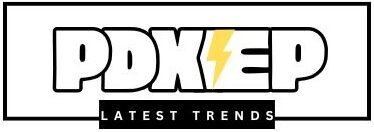Recent online discussions have centered around an anticipated $2,600 stimulus check purportedly set for distribution in April 2025, sparking significant interest among Americans grappling with economic hardships. This buzz has generated a mix of hope and skepticism due to past experiences during the COVID-19 pandemic when stimulus payments provided crucial financial support.
IRS and Treasury Statements
It is imperative to clarify that the Internal Revenue Service (IRS) and the U.S. Department of the Treasury have not confirmed any plans to issue such a stimulus check. Despite widespread rumors, these agencies have explicitly stated that no $2,600 stimulus payment is scheduled for April 2025 or any foreseeable date.
The Origins of the $2,600 Stimulus Check Rumor
The misconception regarding the $2,600 stimulus check appears to have stemmed from various sources. The confusion is partly due to the conflation of ongoing government aid programs with previous stimulus efforts, leading some to erroneously anticipate new payments. Additionally, the amplification of misinformation through social media platforms like Facebook, TikTok, and X (formerly Twitter) has played a significant role, where sensational headlines often circulate unverified or inaccurate information.
The Role of State-Level Initiatives in Spreading Confusion
Compounding the confusion are state-level relief measures, such as those implemented in California and Colorado, which some have mistakenly believed to indicate a nationwide stimulus effort. This misinterpretation has been exacerbated by the heightened financial awareness during tax season, making more people susceptible to rumors about potential tax refunds and stimulus payments.
No Congressional Approval for $2,600 Checks

It is crucial to understand that any federal stimulus plan would require a formal proposal and passage through Congress, followed by detailed announcements via official government channels and reputable news outlets. As of now, there has been no legislative movement suggesting the introduction or approval of a $2,600 stimulus check.
Understanding Legitimate Sources of Aid
While the rumor of a $2,600 stimulus check is unfounded, there are several existing financial assistance programs that offer genuine relief. These programs, which include federal and state initiatives like the Earned Income Tax Credit, Child Tax Credit, and Social Security benefits, provide substantial support to eligible individuals and families.
Tips to Avoid Misinformation
In an era where misinformation can spread rapidly, it is essential to verify financial information through reliable sources. Individuals should consult official websites such as the IRS or the U.S. Department of the Treasury for updates on stimulus checks and tax credits. Additionally, engaging with credible news outlets and consulting tax professionals can help clarify eligible benefits and prevent falling for scams.
Staying Informed and Vigilant
The allure of a $2,600 stimulus check highlights the broader issue of misinformation in times of economic uncertainty. By prioritizing verified information and remaining cautious of too-good-to-be-true offers, individuals can protect themselves from scams and focus on accessing legitimate financial resources. It is always best to rely on trusted sources and remain informed about genuine government aid programs to navigate financial challenges effectively.

